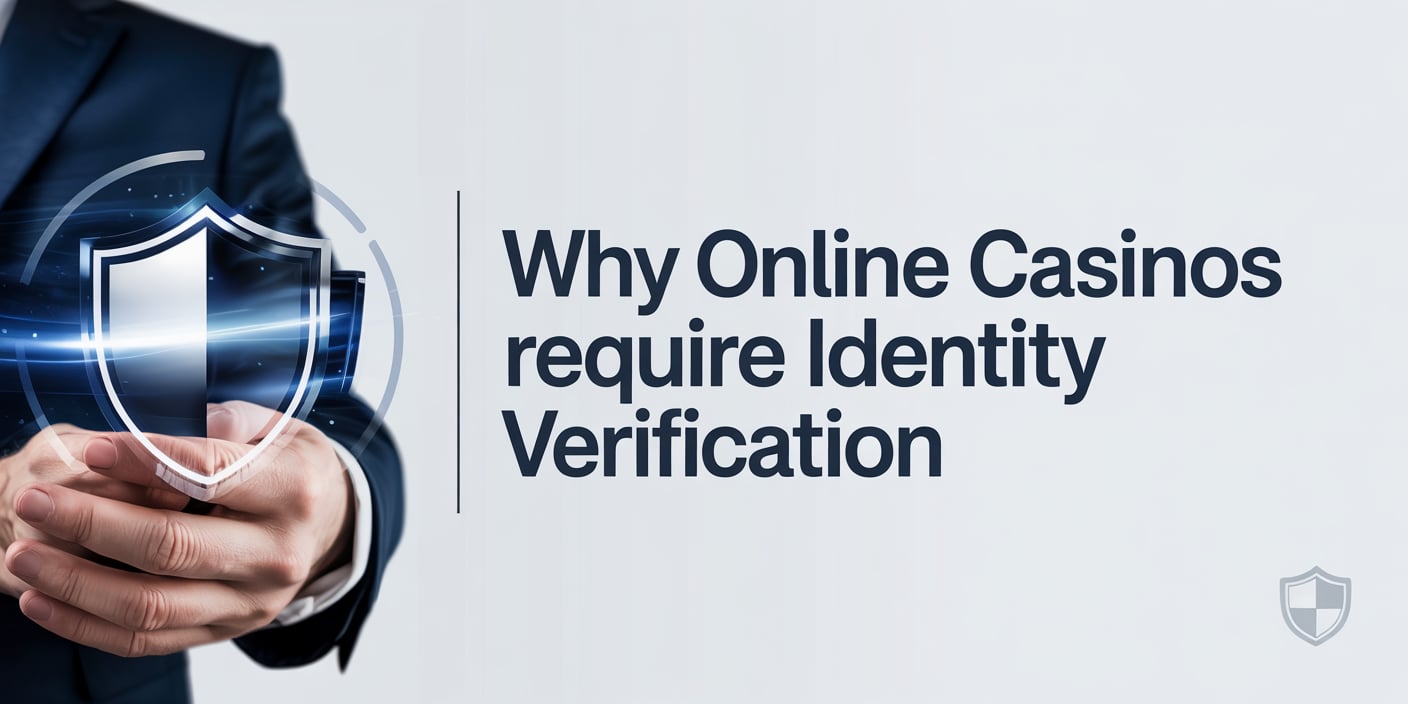

-
Contact us
Contact us
Australian Clearinghouse for Youth StudiesUniversity of Tasmania,
P O Box 5078, UTAS LPO,
Sandy Bay, 7005,
Tasmania, AustraliaTel: (03) 6226 2591Fax: (03) 6226 2578Email: [email protected] -
Search ACYS
- Events
Why Online Casinos Require Identity Verification

The "Know Your Customer" (KYC) process is a regulatory process embraced by financial institutions, such as casinos, with the aim to verify the legitimacy of the identity of the client.
In France, the National Gambling Authority (ANJ) mandates all online casinos to obtain KYC documents from clients and undergo all the verification steps. The regulation follows the three main objectives of the French Gambling Law:
- To prevent gambling from becoming a source of or linked to crime or disorder
- To see to it that gambling is carried on honestly and in the open
- To safeguard children and vulnerable persons against being exploited or harmed by gambling
Thus, illegal online casinos are fined heavily and lose their operating license too. Apart from that, if you wish to choose a fast paying casino Quebec like Enlignecasinofrancais.com, it is strictly required that you make sure your chosen casino fulfills these regulatory steps in order to provide fast and secure transactions.
Moreover, non-cooperative players who do not submit KYC documents will be delayed in withdrawal or even unable to make withdrawals. Others will even have their accounts terminated. Players found with forged identification will have huge penalties or even face criminal charges.
Why Identification Is Required
Below are five most compelling reasons why identification is required upon registration and withdrawal at internet casinos:
Compliance with Anti-Money Laundering Legislation
Money laundering is an illegal activity whereby the origin of illicit money is concealed to create the impression that it has been acquired legally. Money of this nature typically comes from criminal enterprises such as sponsoring terrorism or narcotics trafficking.
One of the most prevalent ways that criminals "launder" money is online gambling. Because online gaming websites and online casinos have a tendency to deal large amounts of money and are easily accessible, they can easily become havens where this form of cybercrime goes unchecked.
Crooks hide their ill-gotten cash in casinos so it will appear to be coming from a legitimate source or so it will be "washed." Others merely spend money acquired illegally to finance their casino habit. Both are both wrong either way and are large examples of money laundering for online casinos.
The government has then put in place stringent regulations, primarily on the tools used by criminals that are technologically compatible. To date when the KYC process was introduced, all parties involved must present identification documents, residency documents, and most critically, bank statements. The statements are used to trace the source of your money.
If the casino operators accuse you of money laundering, they will ask you to prove to them that your funds are clean. Your account may be shut down, and in the worst scenarios, even reported to law enforcement if you do not comply.
Online casinos that fail to detect or actively facilitate money laundering on their websites also face prosecution, in the way of hefty fines or compulsory shutdown.
Preventing Underage Gambling
The age to gamble differs from country to country. For instance, for France, the age to gamble is 18 as per French gambling law.
Complying with the French Gambling Law, the National Gambling Authority (ANJ) prohibits minors from gambling. Online casinos must thus carefully screen players' ages. Showing ID documents helps determine if you are a minor. The operators can even cross-check on electoral registers to verify the legitimacy of your ID as well as whether you qualify to register on their site.
True, it is the case that some casinos do not request KYC documents at sign-up, and this can result in underage players finding it convenient to exploit free spins and bonuses. However, they will also be asked to confirm their age and identity before they can access the winnings.
Fraud Prevention
KYC also keeps fraudulent behavior by individuals or groups at bay. Collusion is one such example. Collusion refers to opening numerous accounts, with the utilization of fictitious names or hijacked personal data. They intentionally lose on some accounts so that a very important core account can emerge victorious.
Not only fraudsters but also other types of criminals are facilitated by registration through the use of stolen credit cards to deposit money to online casinos. They can also take advantage of chargeback policies to obtain "refunds" for that matter. Chargeback, often referred to as "friendly fraud," is when the customer complains to the charge with his or her bank rather than with the merchant (here the web casino) in order to receive money under false conditions. The scammers utilize this to minimize losses. It is hence why credit card casinos take KYC procedures extremely seriously.
All such activities are illegal, and the players who have been found guilty can be punished legally. Online casinos check documents produced thoroughly for authenticity.
Irresponsible Gambling
Players known for irresponsible gambling or cheating are kept strictly under observation. KYC documents enable online casinos to understand whether you are blacklisted or banned from gambling.
Online casinos also target problem gamblers. To keep problem gamblers safe from being exploited further, the majority of sites prohibit problem gamblers from registering accounts.
Avoidance of Bonus Abuse
Some players misuse welcome bonuses by creating multiple accounts. Identity checks render such players ineligible to use promotion schemes more than once.
The casinos tend to allow one account per person in most cases. If you happen to be found opening another account, your first account may be closed and you may be denied funds and winnings. In severe cases, all your accounts may be frozen and you may be banned from the site too.